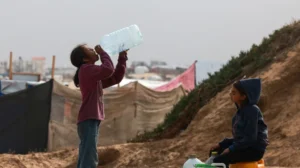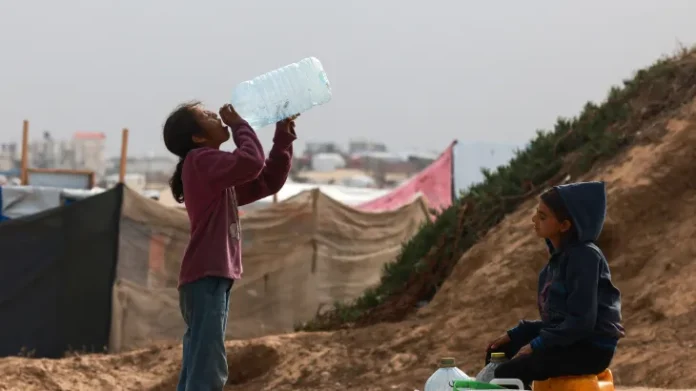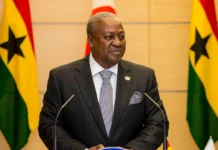Palestinian president, international leaders to meet in Riyadh for Gaza talks
The meetings in the Saudi capital are expected to take place in the coming days on the sidelines of the World Economic Forum (WEF).
“We do have the key players now in Riyadh and hopefully the discussions can lead into a process towards reconciliation and peace,” WEF President Borge Brende told a news conference, noting that Gaza’s humanitarian crisis would be on the agenda.
Palestinian Authority President Mahmoud Abbas and US Secretary of State Antony Blinken will attend the meetings alongside regional leaders, including Qatar’s Prime Minister Sheikh Mohammed bin Abdulrahman bin Jassim Al Thani, he said.
Saudi Arabia’s foreign minister, Oman’s crown prince and Bahraini officials will also be there, while Egypt’s foreign minister will update officials on a round of talks Egyptian negotiators held in Israel on Friday in an effort to restart stalled efforts to end the fighting in Gaza and return the remaining Israeli captives.
“There is now a bit of momentum for negotiations on the hostages and also a possible ceasefire,” She said.

The growing protests sweeping US university campuses have spurred heated debates around freedom of speech, Palestinian solidarity activism in the US, and the use of force to disperse student protesters, among other issues.
But the students at the heart of the movement say the reason they began their demonstrations – the pressing need to end Israel’s deadly bombardment of Gaza – risks being lost amid a cacophony of voices and distractions.
“Gaza is why we’re here. Gaza is why we’re doing this,” Rue, a student at The New School in New York City who asked to only be identified by her first name due to a fear of reprisals, told us. “The New School encampment is happening because we want to make sure that we are doing what we can to end this genocide.”
The students have issued a list of demands to their respective universities, including divesting from any companies that may be profiting from the Gaza war or providing the Israeli military with weapons and other support.
“As students who are being taught in class about colonialism, about Indigenous rights, about the effect of non-violent protest across history, it would be extremely hypocritical – or it would totally undermine the point of our education – if we didn’t act,” a 25-year-old PhD student at New York University told us.
“At the very least we can show that there was resistance” to what is happening in the Gaza Strip, the student said. “The horrors in Gaza are really beyond imagining. These small acts of resistance, these are small sacrifices – [they] are nothing compared to what is happening on the ground in Palestine.”




